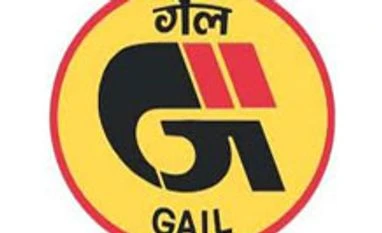Petronet LNG Ltd, a private firm whose chairman is Oil Secretary, had in August 2009 signed a 20-year deal to buy 1.44 million tons per annum of liquefied natural gas (LNG) at a price equivalent to 14.5% of the ruling oil rates.
The formula agreed when Prosad Dasgupta was the Managing Director and CEO of Petronet, translates into $14.5 per million British thermal unit price at $100 per barrel oil price. After adding shipping cost, 5% import duty and the cost of converting liquid gas back into its gaseous state, the Australian gas will cost close to $17 at Kochi port.
This compares to US Henry Hub rate of about $4 using which GAIL has recently signed deals to import gas from the US. Qatar, the world's largest LNG producer, sells gas to India at much lower rates.
GAIL Director (Marketing) Prabhat Singh this month wrote to Petronet Managing Director A K Balyan seeking reduction in price of Gorgon LNG in view of changed scenario worldwide.
Sources said several long-term LNG deals including Russian giant Gazprom's agreement to sell gas into Europe have been renegotiated in recent past in view of slump in benchmark gas prices.
"I would like to bring to your kind attention that the circumstances under which the price provisions (at higher slope linked to Japanese crude) were agreed in the said Sale Purchase Agreement (for Gorgon) have changed significantly and the same has long term implications for Petronet and the R-LNG off-takers viz GAIL, IOC and BPCL," Singh wrote.
Besides difficulties in marketing of such high priced gas, rupee depreciation against US dollar will make the fuel even more costlier.
Singh said over the last few years, regional gas prices in North America, Europe and Asia have seen a record divergence, driven by both supply and demand factors such as the US shale gas boom, the European Financial crisis and the Fukushima nuclear crisis.
Petronet Director (Finance) R K Garg confirmed receiving GAIL letter and said the company was examining it internally if renegotiation was feasible. Exxon Mobil, the seller of Gorgon LNG, will be approached if renegotiation was possible.
GAIL, Indian Oil, Bharat Petroleum and Oil and Natural Gas Corp (ONGC) hold 12.5% each in Petronet. Petronet is a private listed company but Oil Secretary is the Chairman of the company. The Gorgon deal was signed when R S Pandey was the Petroleum Secretary and Chairman of Petronet.
Petronet is to get Gorgon LNG in second half of 2015, with initial supplies of being about 0.48 million tons, ramping up to contracted 1.44 million tons in two years.
GAIL pointed to a spate of referrals to arbitration or alternate dispute resolution to reopen/review prices under gas contracts during recent times.
In September 2012, an ICC panel had redrafted a 25-year long-term gas supply contract executed between Italian energy utility Edison and Rasgas in 2003, in an award worth around Euro 450 million to the Italian group.
Companies like EON, Germany and ENI, Italy have successfully negotiated price cuts in their contracts with Gazprom, stated Singh, adding, Germany's RWE and Poland's PGNiG both have cases pending against Gazprom to cut gas prices.
Italy's Edison has also brought arbitration proceedings against its Libyan and Algerian suppliers, which are still pending.
"With such changing dynamics of the World LNG industry, there is a need to urgently explore the possibility of revisiting the price provisions of Gorgon project's SPA so that LNG supply under this SPA becomes commercially feasible in the changed circumstances.
"Given the substantial investments already made by Petronet in Kochi terminal and by GAIL in downstream pipeline infrastructure, it is now inevitable that Petronet makes all possible efforts to reopen the price provisions under this SPA," Singh said.
GAIL said there would be migration away from oil-linked pricing to more spot or hub-based pricing of gas super-cooled to its liquid form (LNG).
"Moreover, the advent of diverse new supply sources (such as US, Russia, East Africa, among others); increasing gas-on-gas competition from transnational pipelines (such as TAPI, Russia-China, Turkmenistan-China pipelines etc); increasing availability of spot-price-based LNG exports (through Henry Hub in particular); decoupling of domestic gas prices from oil indexation in advanced economies; the effects of the global recession; the growth in demand and commitment for renewable energy, among other things, we expect to see a gradual but partial migration away from oil-linked pricing to more spot or hub-based pricing or alternatively some lowering of contract "slopes" to make such long term deal sustainable in mutual interest of seller and buyer," GAIL wrote.
You’ve reached your limit of {{free_limit}} free articles this month.
Subscribe now for unlimited access.
Already subscribed? Log in
Subscribe to read the full story →

Smart Quarterly
₹900
3 Months
₹300/Month
Smart Essential
₹2,700
1 Year
₹225/Month
Super Saver
₹3,900
2 Years
₹162/Month
Renews automatically, cancel anytime
Here’s what’s included in our digital subscription plans
Access to Exclusive Premium Stories
Over 30 subscriber-only stories daily, handpicked by our editors


Complimentary Access to The New York Times
News, Games, Cooking, Audio, Wirecutter & The Athletic
Business Standard Epaper
Digital replica of our daily newspaper — with options to read, save, and share


Curated Newsletters
Insights on markets, finance, politics, tech, and more delivered to your inbox
Market Analysis & Investment Insights
In-depth market analysis & insights with access to The Smart Investor


Archives
Repository of articles and publications dating back to 1997
Ad-free Reading
Uninterrupted reading experience with no advertisements


Seamless Access Across All Devices
Access Business Standard across devices — mobile, tablet, or PC, via web or app



)
